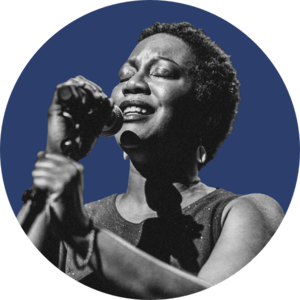Prior to the Civil War, runaway slaves who were captured in Union territory would have been returned to their enslavers as a result of the Fugitive Slave Law. But a bold decision by a Union general in 1861 sanctioned the escape of freedom seekers into Union refugee camps, where they would be kept as contraband, or spoils of war.
Hundreds of thousands of Black Americans seized their chance as a result of this decision, escaping slavery to pursue new lives of freedom. However, with the Emancipation Proclamation yet to be enacted, many within Union ranks weren’t motivated to help freedom seekers achieve their dreams of better lives, often prioritizing their own goals even if they came at the expense of the new arrivals.
View Transcript
Kidada Williams: Previously, on Seizing Freedom:
Harry Jarvis: I went to him and asked him to let me enlist, but he said it wasn’t a Black man’s war. I told him it would be a Black man’s war before they got through.
Ann Carney: My Dear Husband I received your letter…They are treating me worse and worse every day.
Samuel Christy: I will send you my likeness as soon as I can get it taken. The regiment are full now and we got our uniform and arms.
Jacob Christy: They are Springfield rifles that can kill at great distance.
Lewis Douglass: This regiment has established its reputation as a fighting regiment. Not a man flinched, though it was a trying time.
Susie King Taylor: The scenes are just as fresh in my mind to-day as in ’61—the roll-call, the drum tap, “lights out,” the call at night when there was danger from the enemy.
JC: But by God’s will and power they will have their rights. Us that are living now may not live to see it. If we can’t get our rights, we will die trying for them.
KW: Since the beginning of the Civil War, thousands of people freed themselves and fled toward Union camps—covering endless miles, shifting entire populations, and establishing massive communities of tents or cabins next to active battlefields.
Some estimates put the total number of Black people in these wartime refugee camps around half a million. And their experiences ranged widely, depending on where those camps were located.
In 1863, George Washington Fields was enslaved on a plantation in Hanover, Virginia. George was nine years old, almost ten. He lived with his mother, six of his siblings, and a boy who would become his brother-in-law. It was the height of the Civil War and they were caught in the middle of a firefight.
George Washington Fields: Southern soldiers were the first to open fire, which was returned by the Yanks, and the fight was on. A shot from a Yankee fieldpiece struck the corner of the cabin upon the porch of which my mother was standing with her children huddled about her, causing it to sag, though it did not fall.
KW: The skirmish was quick. But it changed George’s life forever.
GWF: Mother quickly packed up what little clothing she and the children had, and then baked several large cakes of flour bread which she put with two bottles of sorghum and a small bit of meat in a bag. Then she distributed the bundles among the children. My lot was to carry my youngest sister, Catherine, who was too young to walk.
KW: This was his family’s chance. With the plantation occupied by Union forces, George’s family could finally free themselves.
GWF: All being ready, mother put the pot on her head, and then the caravan of nine human souls moved off, and as we passed the great house mistress said,“Goodbye, Martha Ann,” with tears in her eyes. Mother said, “Goodbye, Miss Catherine.”
We hurried along, and as we got around the bend or curve in the road, we saw a great blaze. As we drew near, we found that the Yankees had gone over and burned the bridge behind them. Here we stood on the brink of the river, and still in the rebels’ territory. What could we do? What should we do? All eyes were upon Mother who seemed for a while somewhat bewildered.
KW: George’s mother Martha beckoned her children to follow through the woods, as quietly as they could. She was going to take them to her brother’s house on a different plantation.
GWF: All that night we wended our way through thorns and briars, with our feet and hands torn and bleeding. Occasionally we could hear what seemed to us to be a large snake darting through the leaves and dried grass. The whippoorwill and the large gray owl seemed delighted to accompany us from the start to the end of our journey.
KW: Eventually, they made it to their uncle’s cabin—miles away on a different plantation. One by one, he ferried the family across the river in his makeshift canoe—right into Union territory.
GWF: There Mother stopped, and putting down her pot, she bade us set down and not stir until she returned…and away she went towards the light and the bugle sound.
In about an hour, she…returned amid a drenching rain. She stooped down, picked up the pot and bade us follow her. Away we went through the night, all weeds and grass, which shed its rain drops upon our bodies. I, being the shortest in the bunch, some of the weeds towered above my head; and whenever I touched against them, I was treated to a very copious shower bath. Soon we were at the top of the hill and could see not far away the Yankee campfires burning brightly.
KW: George and his family didn’t know what to expect. They were refugees from slavery—cold, wet, hungry. And they were about to emerge, unannounced, into a camp full of armed white men.
They could be turned away. They could be captured and sent back as fugitive slaves. Or worse. But, in this moment, they were free, and they were free together. For that, they’d risk anything.
I’m Dr. Kidada Williams. This is Seizing Freedom. On this show, you’ll hear how Black people fought to liberate themselves during the Civil War and how they gained political power during Reconstruction, despite every attempt at violent suppression.
You’ll hear stories of freedom taking and freedom making directly from the people who did both. All of the stories you hear are drawn from archives of voices from American history that, until recently, were ignored time and time again.
You’ll also hear just how far some white people were willing to go, even after the end of slavery, to keep their power and undo the progress African Americans and their allies achieved.
On today’s episode: Refugees.
William Kinnegy: I made an excuse to look out of the door and…watching my chance…while the train was in full motion passing through a wood…I jumped off.
Mattie Brown: Mother said when she heard of freedom she took me in her arms and left. The first I can recollect she was cooking for soldiers at the camps at Montgomery, Alabama.
Isaac Stier: We… were suffering so we took the sweaty horse blankets and soaked them in mud holes where the horse tromped. Then we wrung ‘em out in buckets and drank the dirty water for pot-likker.
KW: We’re looking at the lives of the displaced—not people fleeing across international borders, or seeking safety from natural disasters—but wartime refugees from slavery.
Refugees’ movement generally mirrored the movement of the Union Army. In southeastern Virginia, more than 8,000 Black people crossed Union lines in just two years. Farther south and west, the army didn’t reach deeply into Confederate territory until later in the war and refugees were forced to travel further to find a chance at relative safety.
As hopeful as arrival at Union lines could be for many, life as a wartime refugee was difficult and often short. Army camps were never meant to house huge numbers of women, children, and the elderly. Thousands died across all the Union camps from exposure, malnutrition, and disease.
Most camps were active military sites and subject to Confederate raids, which meant murder or reenslavement. And in these camps, when Freedom Seekers were able to determine what their lives could look like after slavery, it often put them in conflict with the Union.
Elizabeth Keckley: Many good friends reached forth kind hands, but the North is not warm and impulsive. For one kind word spoken, two harsh ones were uttered…and the bright joyous dreams of freedom to the slave faded—were sadly altered, in the presence of that stern, practical mother…reality.
KW: In reality, the very army we were taught was fighting for them threatened to undermine everything they had worked for. We’re going to see how those conflicts evolved as the frontlines—and refugees that fled toward them—moved from east to west.
So, back to Virginia and George Washington Fields. George was a Black kid, arriving unannounced with his family to a Yankee camp, having just escaped slavery—unsure if his family would be accepted or turned away. They got lucky—the battalion was sympathetic.
GWF: They gave us three hardtack sandwiches with thin pieces of fat meat between, and a tin cup of corn coffee already sweetened to taste. This we enjoyed immensely, and besides it saved us the contents of our iron pot, for we did not know how far yet lay our journey ahead.
KW: The Fields family knew that military camps weren’t permanent places. Shortly after they arrived, the Union Army camped near Hanover, Virginia, received orders to retreat. More than a thousand refugees, who had fled to the army for shelter, were escorted in the opposite direction—to the York River—with no clear idea where they were going or what would happen to them.
GWF: The people were put into barges, seven in number, fastened one behind the other with heavy ropes or hawsers. All being ready, this large flotilla of human souls, numbering about four thousand, began to move slowly down the river. Some of the younger people, at the age that knew nothing about seriousness, sang the following song:
“Abe Lincoln ride the bay horse / Jeff Davis ride the mule / Abe Lincoln is a gentleman / Jeff Davis is a fool! Shout, boys, Shout / For I am a Union man / Oh, Yankee Doodle dandy / Hurrah for Uncle Sam!”
And in the midst of this great rejoicing, the large rope or hawser by which our barge was fastened to the others parted, and we found ourselves slowly drifting back up the river, where it was said a rebel gunboat was, and for a while great indeed was the consternation. The people were frantic with fear, women and children were screaming, and the men were doing what they could to quiet them as they ran from one side of the boat to the other, causing it to take water; and for a while it seemed that all were doomed to fill a watery grave.
It was not fear of death that terrorized them so much, but the fear of being recaptured and taken back to the relentless taskmaster, where the cry of the slave for mercy and where the barking of the bloodhounds on the trail of some runaway slave seem never to cease. They preferred a burial at sea, or any other place out of a land of bondage and oppression.
KW: While the passengers despaired, another boat struggled to make its way back to George’s barge—eventually catching up and re-tying it to the rest. The flotilla reached Fort Monroe—a Union stronghold at the southern tip of the Virginia Peninsula—without anyone being lost or recaptured.
GWF: The work of getting the refugees ashore as rapidly as possible was begun. The people were cheerful and happy at the thought of being free and under the protection of the large cannons, many of which were mounted on the ramparts.
KW: George’s family didn’t stay long at the camp at Fort Monroe. They built new lives as free people in Hampton, Virginia.
In that way, George’s family got lucky again—because the United States government didn’t really have a plan for refugees. White people on both sides of the conflict hadn’t realized the obvious: that enslaved people would flee farms and plantations the first moment they could—just like they had in every war. The United States didn’t intend for Fort Monroe—or any other fort, for that matter—to become a safe-haven for Black refugees.
But in 1861, two years before George’s family arrived at the camp and two years before the Emancipation Proclamation—Freedom Seekers were already trying to force the Union’s hand. Among them were three Black men named Frank Baker, James Townsend, and Sheppard Mallory. They escaped from laboring on Rebel strongholds and made their way to Fort Monroe.
The men were pursued by a Confederate officer, who demanded a meeting with Union General Benjamin Butler—the same general that told Harry Jarvis this “wasn’t a Black man’s war” when he tried to enlist. The Confederate officer insisted that General Butler turn the trio over to him, invoking the Fugitive Slave Law, which would send them back to the people who held them in bondage.
But General Butler did something unexpected: He flat out refused.
He said that the Law only served slaveholders loyal to the government of the United States. When Confederates chose rebellion over union, he argued, they gave up the right to have their property protected. And so, General Butler decided that Frank, James, and Sheppard were the Union Army’s property now, as contraband, or spoils of war.
Labeling refugees as “contraband” was controversial, since it essentially said that Freedom Seekers were property, things that could be possessed, being “contraband” effectively meant trading one keeper for another.
Benjamin Butler: Since I wrote my last dispatch the question in regard to slave property is becoming one of very serious magnitude.
KW: As Butler struggled to accommodate the huge influx of refugees to Fort Monroe, he also struggled with what to do with refugees that weren’t viable military assets: namely, children and the elderly.
BB: Of course these cannot be dealt with upon the Theory on which I designed to treat the services of able bodied men and women who might come within my lines… I am in the utmost doubt what to do with this species of property.
KW: Since the military measured its decisions in terms of strategic benefit, it needed to figure out if families—not just able-bodied men—counted as “contraband.” If not, what protection—if any—did the Union owe them?
BB: As a military question it would seem to be a measure of necessity to deprive their masters of their services. How can this be done?
KW: The Union Army was an army, not a humanitarian aid organization. That was the job of the missionaries and charity groups that also populated the camps.
BB: As a political question and a question of humanity: can I receive the services of a Father and a Mother and not take the children? Of the humanitarian aspect I have no doubt. Of the political one I have no right to judge.
KW: That divide—between the humanitarian and the political—remained a constant source of conflict throughout the war. And Black refugees paid for it, often with their lives. But that didn’t stop Freedom Seekers from capitalizing on the opportunity to get to contraband camps. Word spread and thousands of Black people fled to sanctuary at Fort Monroe. In fact, they fled to any place the Union Army seemed to be.
Whether he meant to or not, General Butler sanctioned the escape of masses of refugees, creating major population shifts across the conflict—and creating new communities of Freedom Seekers among the battlegrounds.
Early in the War, refugees escaped to contraband camps one or two at a time. And they weren’t idle. They’d pick up work for the Union army as carpenters, blacksmiths, cooks, laundresses, and spies. Once they were certain they wouldn’t be turned away, they’d go back to farms and plantations to secure their families.
This is what William Kinnegy, who was enslaved outside of New Bern, North Carolina, did. In 1857, he had jumped from a moving train to escape being sold to Alabama, away from his family.
William Kinnegy: When the train had passed Goldsborough…it was night. Knowing that I was then as near to the residence of my wife and children as I ever probably should be, I made an excuse to look out of the door and…watching my chance…while the train was in full motion passing through a wood…I jumped off.
William hid in the woods near his wife’s house, about five miles from his old plantation.
WK: I dared not permit myself to be seen by a white man for months, and then only by one or two of the very poorest, who traded with me in small things.
KW: In 1862, after five years of hiding in the woods—William was thrilled to find the Union sweeping into New Bern to oust the Confederates. He emerged and found both refuge and work with the Union army. Shortly after, he implored the camp’s “superintendent of the poor” to give him a free pass to retrieve his family and bring them to the camp.
WK: I have worked a month for you on the fort, have eight dollars, wages received there, in my pocket—and now hearing that my wife’s owner has run away and she and the children are up in the country alone, I have come to you for a pass to go and bring them down.
KW: It was a risky proposition. William had just spent the last five years desperately trying to avoid contact with white rebels who would undoubtedly reenslave or kill him. Now, he wanted permission to infiltrate their recently conquered territory.
The army struck a deal with William—he could get a pass to travel home if he agreed to spy on nearby rebel encampments along the way. His wife and kids were welcome to come—if he could get them. William agreed. He was given three days of rations, a pocketful of silver, and a free pass.
He succeeded, returning with his wife, his children, and what the superintendent called, “valuable information.”
We don’t know what became of William and his family. All that was archived was William’s request for a pass, and what his superiors reported about his mission. Stories like William’s often appear as fragments in the historical record. Largely denied literacy, and running to survive a war while making and taking freedom as they went, Freedom Seekers rarely had the resources, or the time, to record their experiences as they happened. Which means the records of their victories and their pains are often delivered second-hand.
As in the case of Louis Hughes, an enlisted Black man with the Union army. He told the story of a man who took the same risk as William Kinnegy and failed:
Louis Hughes: It was about (1862 or 63), that the law or regulation of the rebel government was promulgated, authorizing or directing the shooting or hanging of any slave caught trying to get to the Union army. This barbarous law was carried out in many cases, for every little while we would hear of some slave who was caught running away, and hung or shot. A slave belonging to Boss ran away and got safely within the Union lines; but he returned to get his sister. They both got away from the house but had gone only a few miles when William McGee overtook them and shot the man dead.
KW: Mary Gaines was born after the war, so she also told refugee stories second-hand. Her family had escaped a particularly vicious slave owner and made it across Union lines.
Mary Gaines: They walked nearly in a run all night and two more days. They couldn’t carry much but they had some meat and meal they took along. Their grub nearly gave out when they came to some camps. Somebody told them, ‘This is Yankee camps.’ They give them something to eat.
KW: They found work within the camps, too. But their freedom was short-lived.
MG: …They got to stay a while but the Yankees took them to town and Master Harris come got them and took them back…”
KW: The details aren’t clear, but it’s likely that the Gaines family was betrayed by Union soldiers and sold back to their enslaver—which happened often in the West. Throughout the war, Freedom Seekers had to contend with the threats of re-enslavement and death—but also Union abuse.
Contingent of White Missionaries: Some who have been paid by individuals for cotton or for labor have been waylaid by soldiers, robbed, and in several instances fired upon as well as robbed, and in no case that we can now recall have the plunderers been brought to justice.
KW: This is a letter from a contingent of white missionaries in Arkansas, reporting on the mistreatment of refugees they witnessed at the hands of white Union servicemen:
CWM: The wives of some have been molested by soldiers to gratify their licentious lust, and their husbands murdered in endeavoring to defend them, and yet the guilty parties, though known, were not arrested. For the sake of humanity, for the sake of Christianity, for the good name of our army, for the honor of our country, cannot something be done to prevent this oppression & to stop its demoralizing influences upon the Soldiers themselves?
KW: Refugees took careful stock of this abuse. Camps weren’t just a place to potentially get a roof and a cold meal—they were also communities. Refugees met there to find lost loved ones, exchange information, and debate their futures. They had visions of freedom and discussed them passionately, assessing what role they wanted the Union to play in their new lives.
From the vantage point of the camps, the outlook for a partnership between freedpeople and the federal government wasn’t great. Thomas Walker had been working at Fort Monroe for months and only earned two dollars and a little bit of clothing. He struggled with his options, ultimately deciding to stay and be patient.
Thomas Walker: I should feel like continuing on – like Job waiting til a change come. And what if we suffer hardships, so we gain freedom in the end? Will that not make rewards for all?
KW: Refugee camp life could be so volatile that some Freedom Seekers wanted nothing to do with the Union army. Will Ann Rogers’ mother sure didn’t. Before Will Ann was born, her mother was living in Richmond, Virginia.
Will Ann Rogers: …a whole army of Yankees came by and saw mother’s first son working. They told him if he come go with them they’d give him that spotted horse and a pair of red boots. He crawled up on the horse and was gone with them for a fact, she said.
She started right after them, following him. She followed them night and day. She nearly starved, just begged along the road all she could. She said some nights when they camped she would beg ’round and try to fill up. But she couldn’t get to him without them seeing her.
KW: Will Ann’s mother followed the Union army—walking almost a thousand miles—from central Virginia to Friar’s Point at the western edge of Mississippi—trying to retrieve her only son.
WAR: When they got to Friar’s Point she went and got him. The soldiers just laughed and never gave him nothing. They left that army fast as they could, she said.
KW: The relationship between Black refugees and the army that was supposed to defend them was tenuous—even in the more eastern states that remained in the Union. And it was particularly uncertain in Border States like Maryland and Kentucky—which technically never seceded but which still held slaves.
White people in Kentucky didn’t want to give their slaveholding neighbors a reason to leave the Union. They were willing to look the other way so often, that you could never really be sure which kind of white Kentuckian you were encountering: a separatist sympathizer or a Unionist who was mostly loyal to the status quo?
Union generals who oversaw camps in these areas, like General William T. Sherman at Camp Nevin, Kentucky, had little love for separatists. But they typically had even less love for the Freedom Seekers fleeing them.
W.T. Sherman: The subject of Contraband negros is one that is looked to, by the Citizens of Kentucky of vital importance. Ten have come into my Camp within as many hours, and from what they say, there will be a general stampede of slaves from the other side of Green River—They have already become a source of annoyance to me, and I have great reason to believe that this annoyance will increase the longer we stay–
I would respectfully suggest that if they be allowed to remain here, that our cause in Kentucky may be injured—I have no faith in Kentucky’s loyalty, and therefore have no desire to protect her pet institution Slavery…
I am very far from wishing these recreant masters in possession of any of their property–for I think slaves no better than horses in that respect–I have put the negros to work—They will be handy with teams, and generally useful. I consider the subject embarrassing.
KW: Attitudes like this meant that Black Kentuckians who did seize their moment to flee, had almost no assurance of sanctuary with Union troops—even if they were eventually able to enlist as one of them.
For Joseph Miller, a formerly enslaved man from Lincoln County, donning a coat of Union blue meant weighing the risks of camp against the risks of leaving his family in the hands of volatile white Kentuckians.
Joseph Miller: I have always resided in Kentucky and am now a Soldier in the service of the United States…When I came to Camp for the purpose of enlisting about the middle of October 1864 my wife and children came with me because my master said that if I enlisted he would not maintain them and I knew they would be abused by him when I left.
KW: And so Joseph, like thousands of other men, carried his family with him to Camp Nelson—looking to exchange his service for food, clothing, and shelter for his wife and kids.
JM: I had then four children, ages respectively ten, nine, seven, and four years. On my presenting myself as a recruit I was told by the Lieutenant in command to take my family into a tent within the limits of the Camp.
KW: The general at Camp Nelson, Speed S. Fry, found civilian refugees to be a burden and drain on soldiers’ resources, and was constantly looking for a way to get rid of them. After at least eight attempts at finding official reasons to expel them, he eventually ordered all refugee families out of the camp.
On the evening of November 22nd 1864, mounted guards gave Joseph Miller’s wife, Isabela, and over 400 other refugee women and children notice that they must leave Camp Nelson.
JM: The morning was bitter cold. It was freezing hard. I was certain that it would kill my sick child to take him out in the cold. I told the man in charge of the guard that it would be the death of my boy. I told him that my wife and children had no place to go and I told him that I was a Soldier of the United States. He told me that it did not make any difference, he had orders to take all out of Camp. He told my wife and family that if they did not get up into the wagon which he had he would shoot the last one of them. On being thus threatened my wife and children went into the wagon. I followed them as far as the lines. I had no knowledge where they were taking them.
KW: Joseph was an enlisted soldier, so he couldn’t immediately follow after Isabela and their kids. He was also a man who believed in duty: to his family, to his country, to the cause. Once he completed his assignments for the day, Joseph set out—when both the temperature and the diminishing light were against him—to find his family.
JM: I found them at Nicholasville about six miles from Camp.They were in an old meeting house belonging to the Colored people. The building was very cold having only one fire. My wife and children could not get near the fire because of the number of Colored people huddled together by the soldiers. I found my wife and children shivering with cold and famished with hunger. They had not received a morsel of food during the whole day. My boy was dead…
KW: Walking back that night, Joseph would have seen the torches of the Union campfires burning brightly in the distance. Those same fires which had once symbolized shelter and the promise of security for George Washington Fields and his family on their journey to Fort Monroe.
But for Joseph Miller—tramping through the cut of southern cold, and stinging with the knowledge that his son had perished from exposure at the hands of men bearing the very same uniform he then wore—the light of the fires at Camp Nelson must have symbolized a bitter irony.
JM: Next morning I walked back to Nicholasville. I dug a grave myself and buried my own child. I left my family in the meeting house—where they still remain.
KW: Within two months of their expulsion from the camp, the whole of Joseph Miller’s family: his wife Isabela, his daughter, Maria, and his two remaining sons, Joseph Jr. and Calvin, all perished. Within a week of Calvin’s passing—Joseph Miller followed his family to the grave. But not before reporting what happened to his superiors.
Though Joseph took every pain to protect them, the forces at Camp Nelson failed his family. But his reporting, as well as that of other enlisted men, ensured the preservation of their stories. Seeing that their histories were recorded even in the face of so much death, was a way for these men to continue to seize their freedom. And, perhaps, reporting the truth of their experience would prevent that wanton waste of life from happening again.
Over the course of the war, more than 24,000 Black men enlisted and served for the Union in Kentucky alone, which is nearly a third of the total enlisted population of the state. At least 10,000 of them were recruited at Camp Nelson. The men’s enlistment was meant to stand, as the best defense against harm for their families. But it ultimately left them open to further abuse at the hands of their would-be white shepherds.
Under pressure, and with material assistance from northern aid groups and abolitionists, refugee families were readmitted to Camp Nelson. At least 100 refugees never made it back. The amount of collateral damage to refugees depended on which region of the conflict a camp was in. As boundary lines shifted between Union and Confederate—and the banks of the Mississippi contracted and swelled—the security of Freedom Seekers in the southwest shifted as well.
In the spring of 1863, Union forces laid siege to the Confederate city of Vicksburg and the surrounding area for almost a month. The onslaught took its toll on both the city and refugees like Isaac Stier:
Isaac Stier: The hungriest I’ve ever been was at the Siege of Vicksburg. That was a time I’d like to forget. The folks ate up all the cats and dogs and then went to devouring the mules and horses. Even the women and children were starving. Their stomachs were sticking to their backbones. We…were suffering so we took the sweaty horse blankets and soaked them in mud holes where the horse tromped. Then we wrung em out in buckets and drank the dirty water for pot-likker. It tasted kind of salty and was strengthening like weak soup.
KW: When it was clear the Union would take the city, Confederates changed their strategy to one of scorched earth. They set fire to buildings, farm land… anything the Union would have found useful. The combined damage of both armies left Vicksburg in ruin.
IS: The slaves expected a heap from freedom we didn’t get. We was led to believe we would have an easy time – go places without passes – and have plenty of spending money. But we sure got fooled…
KW: The west was unpredictable, but it also had pockets of flourishing. For a time, Camp Corinth, in Mississippi, was exceptional at facilitating the shift from slavery to independence and self-possesion. Unfortunately, because refugees were on the move without time and means to write or dictate stories of their daily lives, our records of Corinth come from the white men and missionaries the federal government put in charge.
General Superintendent of Freedmen in the Mississippi Valley, John Eaton, Jr., filed reports on contraband camps under his care and noted significant changes in Corinth’s status from its establishment to its prime:
John Eaton, Jr.: When freedmen first entered the camp, their clothing was very poor with exceptions. Some came dressed in suits borrowed from those over them. Now, good by their own earnings and by donations. First, they were sheltered by tents; finally, chiefly by cabins, built by themselves. Health of camp improving.
KW: Corinth was a critical railroad junction, with an ample fresh water supply, and guarded closely by the Union once captured. Better resourced and less beset by illness, the camp was a magnet for Black refugees, and communities of Freedom Seekers thrived.
As they were at many of the contraband camps, refugees at Corinth were industrious. In 1863, 750 women were counted as cooking or laundering for Union troops and 464 men were working as carpenters, blacksmiths, teamsters, or cooks. Reverend A.D. Olds bragged:
Reverend A.D. Olds: It is believed that at this present time our camp is in the most healthy and prosperous state of any in the South West.
KW: Black people built cabins for themselves along ordered, named boulevards. There was a church and a commissary. They cultivated gardens—some for themselves and some to grow produce to sell to the army.
And refugees clamored for more. They pushed missionaries to teach them to read and write—they built schools. They had clear visions for their futures as citizens that required command of pens as well as tools of a trade.
Corinth Chaplain: You will find them every hour of daylight at their books. We cannot enter a cabin or tent, but that we see from one to three with books. I visited a cabin one night about half past nine o’clock and found a boy studying with pine chips for a light, and thus he had been there for over an hour.
KW: Depending on the season and the year of the War, the population at Corinth could range between 1,500 and 6,000 people. There was a huge shift in 1863 when Black men were allowed to enlist. Many were recruited from Corinth, including some who were pressed into service, but they left in droves.
John Eaton, Jr.: I do not doubt he will make a good soldier…Blacks have made better guards for our camps than whites. Most of the officers and men in this Division are in favor of arming the negro at once, believing it will be the best means of ending the war.
KW: But the war ultimately spelled Corinth’s doom. Union General William T. Sherman wanted to press further into the Mississippi Valley. The camp at Corinth was in his way. A reverend lamented:
Reverend Carruthers: The order to evacuate fell like a bomb-shell among our contented people. But military orders are peremptory, and without reason why, and must be obeyed.
KW: And so, in January of 1864, despite the haven that freed people had built there, the Union army evacuated all of Corinth’s Black inhabitants, marching them 93 miles to Memphis…and burned the camp to the ground.
Reverend A.D. Olds: On New Year’s morning the thermometer stood at 11 degrees below zero! A degree of cold before unknown in Memphis. It seemed a wonder to me that many of our people now living in tents with no stoves or chimneys did not freeze to death. Some did die of cold:—but I believe all were those that were sick at the time. Yet for nearly all of the 5000 freed-men here in and around Memphis those were terrible days of suffering.
KW: It runs counter to our expectations that success, not failure, is what led the Union to destroy Corinth. But the security and improvement of Black people’s lives was often more a byproduct of Union action than a motivation to it.
Throughout the war, about half a million Black refugees would experience the pull of freedom across Union lines—and the violent push away from those that could have defended them. But in the end: undermining Black people’s mobility, agency, and safety was critical to managing them as subordinates. As contraband.
Which is why the choices of people like Joseph Miller in Camp Nelson—and Will Ann Rogers’ mother in Mississippi—and William Kinnegy in North Carolina—to run toward Union lines in spite of the risks, were radical.
Their insistence on being recognized as more than contraband flew in the face of military protocol. Instead, they fought to make black self-determination a bedrock for Freedom.
Next week on Seizing Freedom, I talk with historian Abigail Cooper about how life in Civil War refugee camps laid the groundwork for success during Reconstruction.
Abigail Cooper: African-Americans are doing all the things you would imagine someone does when they are trying to scrape out freedom. They are looking for work. They’re looking for shelter, clothing, some kind of sustenance for themselves and their families. There’s a kind of intellectual history of freedom that happens in these camps.
Voice Actors

Chiquita Melvin
Voice of Elizabeth Keckley, Will Ann Rogers

Conrad Haynes
Voice of Louis Hughes

Dale Leopold
Voice of John Eaton, Jr.

Eric Hollaway
Voice of Thomas Walker

James J. Johnson
Voice of William Kinnegy, Joseph Miller

Jefferson A. Russell
Voice of Isaac Stier

Justin G. Reid
Voice of George Washington Fields



Richelle Claiborne
Voice of Mattie Brown, Mary Gaines

Episode Resources
The following resources were utilized in the research and creation of this episode:
-
Abigail Cooper – “When I Get My Axe”: Military Service and Visions of Community in Refugee Camps of the American Civil War
-
Amy Taylor – Embattled Freedom: Journeys through the Civil War’s Slave Refugee Camps
-
Cam Walker – Corinth: The Story of a Contraband Camp
-
Chandra Manning – Troubled Refuge: Struggling for Freedom in the Civil War
-
Chandra Manning – What This Cruel War Was Over
-
David Williams – I Freed Myself: African American Self-Emancipation in the Civil War Era
-
Elizabeth Keckley – Behind the Scenes, or, Thirty years a Slave, and Four Years in the White House
-
Freedmen and Southern Society Project – Black Military Experience
-
Freedmen and Southern Society Project – The Wartime Genesis of Free Labor: The Lower South
-
Freedmen and Southern Society Project – The Wartime Genesis of Free Labor: Upper South
-
George Washington Fields, Kevin M. Clermont – The Indomitable George Washington Fields: From Slave to Attorney
-
Harriet Jacobs (in The Liberator) – Colored Refugees in Our Camps
-
Isaac Stier – Federal Writers’ Project: Slave Narrative Project, Vol. 9, Mississippi
-
Jim Downs – Sick from Freedom: African-American Illness and Suffering during the Civil War and Reconstruction
-
John W. Blassingame (Editor) – Slave Testimony: Two Centuries of Letters, Speeches, Interviews, and Autobiographies
-
Louis Hughes – Thirty Years a Slave: From Bondage to Freedom, The Institution of Slavery as Seen on the Plantation and in the Home of the Planter
-
Mary Gaines – Federal Writers’ Project: Slave Narrative Project, Vol. 2, Arkansas, Part 3
-
Mattie Brown – Federal Writers’ Project: Slave Narrative Project, Vol. 2, Arkansas, Part 1
-
Richard D. Sears – Camp Nelson, Kentucky: A Civil War History
-
Thavolia Glymph – The Women’s Fight: The Civil War’s Battles for Home, Freedom, and Nation
-
Vincent Colyer – Brief report of the services rendered by the freed people to the United States Army, in North Carolina, in the spring of 1862
-
Will Ann Rogers – Federal Writers’ Project: Slave Narrative Project, Vol. 2, Arkansas, Part 6



